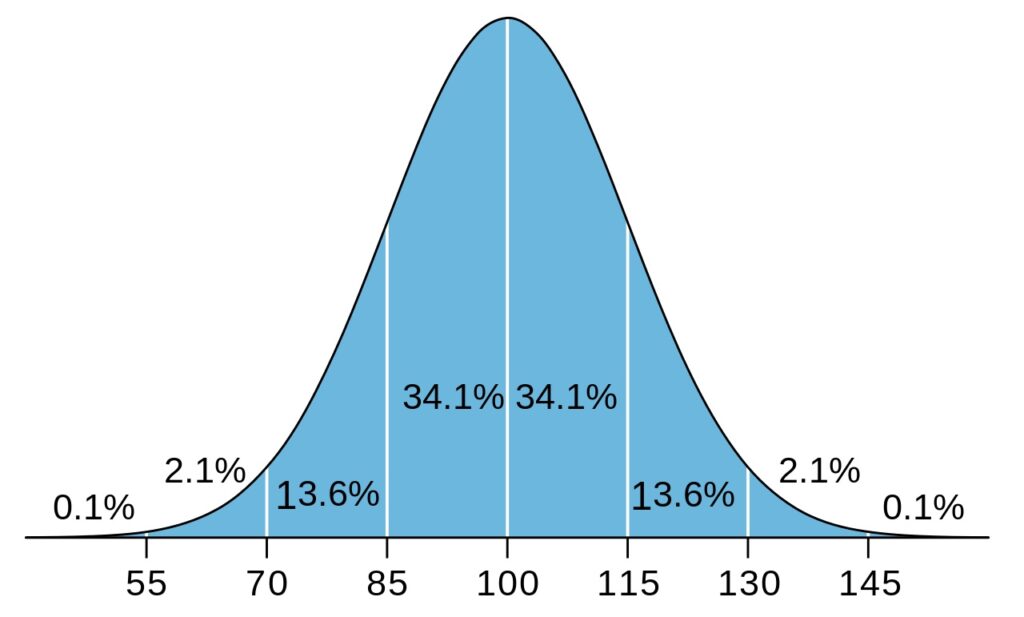
Have you ever wondered how your brilliance stacks up against that of Einstein, Curie, and Da Vinci? Feed your curiosity by finding your Intelligence Quotient and uncovering your unique cognitive insights.
Why take an IQ test?
You will discover your cognitive strengths with an IQ test and unveil insights into your problem-solving, reasoning, and memory abilities. You can leverage this self-awareness to make better decisions in your education and career. Your IQ is a key to unlocking your potential.
What is IQ?
IQ, or Intelligence Quotient, is a numerical score that represents a person’s cognitive abilities in comparison to the general population. It’s typically determined through standardized tests that assess various aspects of intellectual functioning, such as logical reasoning, problem-solving, memory, and mathematical skills. Intelligence Quotient is used as a measure of a person’s potential to learn, adapt, and solve complex problems.
IQ vs. EQ:
IQ refers to Intelligence Quotient, which measures cognitive abilities like problem-solving, logical reasoning, and memory. EQ stands for Emotional Quotient or Emotional Intelligence, which measures one’s ability to understand, manage, and use emotions effectively in various situations. While IQ focuses on cognitive skills, EQ emphasizes emotional awareness and interpersonal skills. Both IQ and EQ contribute to a person’s overall intelligence and social success.
How is IQ distributed?
IQ scores in the general population are typically distributed in a bell-shaped curve, known as a normal distribution.

In this distribution:
- The majority of people fall within the average range, which is centered around an IQ score of 100.
- A smaller percentage of people have scores significantly below or above the average.
- The distribution is symmetrical, with equal numbers of scores below and above the average.
- The distribution curve tapers off towards the extremes, meaning fewer individuals have very low or very high IQ scores.
This distribution helps categorize Intelligence Quotient scores into different ranges, such as below average, average, above average, and gifted. It’s important to note that IQ is just one measure of intelligence and doesn’t encompass all aspects of human capabilities.
